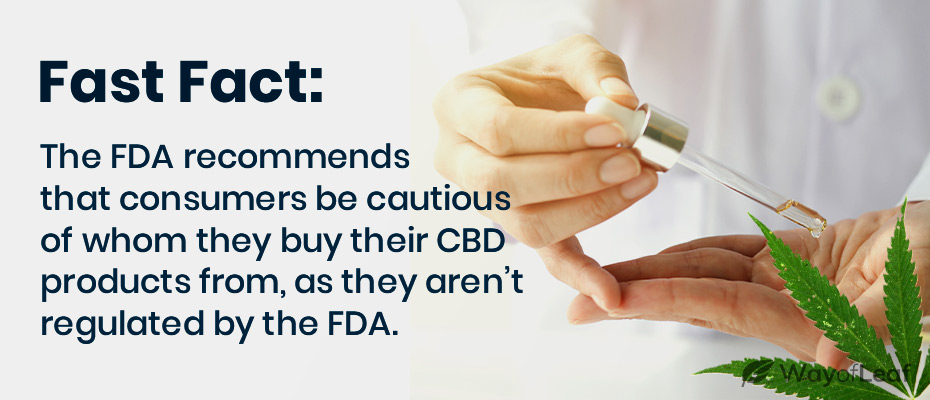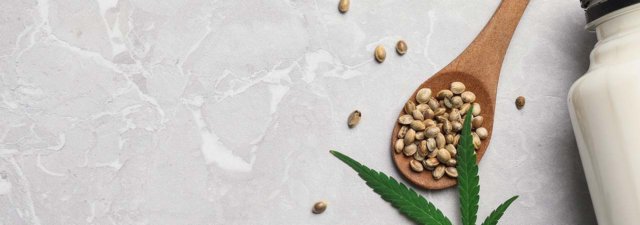If you buy CBD oil online, or if you’ve ever done any general browsing for CBD products, you’ve likely come across the expression “third party testing.” But what does this mean, exactly? Are CBD manufacturers required to have their products tested before they can market and distribute them?
Not exactly, as it turns out. But that doesn’t mean that companies still don’t have an incentive to do it.
In this article, we talk about what third party testing is. We also discuss how reliable it is to separate quality cannabis products from products of questionable quality. And of course, we’ll discuss some things that you as a buyer should be looking out for, as well as what the whole process of lab testing means for you as a consumer.
First Things First: What is Independent Third Party Testing?
The goal behind independent third party lab testing is to have a neutral, unbiased source examine a company’s cannabis products. This is important in today’s market, as the non-regulated state of cannabis more or less allows manufacturers to slap labels on their products and then market and sell them however they please. (In case you were unaware, there are currently few FDA regulations on the CBD industry).

However, in terms of the cannabis industry federal regulation has always been a bit of a double-edged sword. On the one hand, most manufacturers don’t want the government dipping their hand into revenue and profits. They also don’t want someone telling them what they can and cannot sell, market, distribute, etc.
On the other hand, quality manufacturers know that an industry without rules and regulations quickly becomes overrun. Scams, false advertising, and out-and-out lies will quickly take their place in the market. Naturally, this makes it hard for consumers to make a smart purchases or receive quality, reliable information.
Fortunately, this is where the beauty of transparency comes in. Like cream rising to the top of a macchiato, honest companies with quality products will (hopefully) always overcome the competition and rise to the top. This is third-party testing accomplishes. Companies that are manufacturing good, quality products are not afraid to have an outside source verify it for them.
Does the FDA Really Not Regulate The CBD Industry at All?
In all honesty, this is kind of a hazy subject. The bottom line is that no, the Food and Drug Administration does not maintain any regulation or oversight into the CBD industry.
That said, one of the inherent purposes of the FDA is to make sure the public is not exposed to dangerous or questionable health products. This includes natural medications like cannabis. It’s currently illegal for CBD to be called a “dietary supplement.” Past that, the FDA is still in the process of developing a regulatory framework for the CBD and cannabis industries.
If Third Party Testing Isn’t Mandatory, then Why Do Companies Do it?
Analytical laboratory equipment like HPLC’s (high-performance liquid chromatographs) are not cheap. Nor is the labor and expertise that comes with knowing how to use them. Taking this into consideration, why do CBD companies willingly spend thousands of dollars (out of their own pockets) to obtain a “third-party tested” label?
It ultimately comes down to transparency. With cannabis products (and CBD oil in particular) becoming more and more popular by the day, it’s becoming increasingly crucial for companies to establish a reliable and reputable name within the industry. People know what quality CBD oil can do in terms of chronic pain relief, anxiety and depression relief, insomnia relief, etc. So they are certainly not going to spend their hard-earned money on an expensive brand that’s not even transparent enough to have their products laboratory tested.
In short, it is within a CBD company’s best interest to have their products third-party tested. This is despite the high cost. The average consumer nowadays can tell pretty quickly whether a brand is legit. They also can tell whether a company is selling something short of what’s being advertised. When they see that “third-party” label, they know they’re dealing with the former rather than the latter.
What about Cannabinoid and Terpene Profiles?
Another reason companies spend money on laboratory testing is to obtain cannabinoid and terpene profiles for each of their strains. If you’ve ever been to a marijuana dispensary, you’ve probably seen cannabinoid or terpene profiles. In most cases, cannabinoid profiles are visible on the outside of the bottle for quick reference. Or at least they should be if it’s a quality dispensary.

For example, you might buy a Sour Diesel strain that has a cannabinoid profile of 22% THC and 1% CBD. Or you might buy a full-spectrum CBD oil that contains 28% CBD and 2% THC. Without third party testing, customers would have no way of knowing what’s in the product they’re buying.
With more and more information coming out all the time about certain cannabis profiles being better for specific medical conditions (such as high CBD strains for anxiety relief), it’s all the more important that sellers accurately verify what’s in each particular strain.
Final Thoughts: Third-Party Laboratory Testing for CBD Products
The last thing you need to be spending your hard-earned money on is a CBD product that doesn’t contain any CBD. And given the current unregulated state of the industry, this is an all too easy mistake to make.
Thus, it’s becoming increasingly important as a consumer to look for oils, edibles, and other CBD products that have been lab tested by an unbiased, outside source. Shop wisely, look for reliable, reputable brands with good consumer feedback, and never underestimate the importance of third-party quality tested products.
Here are some brands that use Third-Party Testing:





![How to Maximize the Health Benefits of CBD [Answered]](https://wayofleaf.com/wp-content/uploads/2018/10/mj_how-to-maximize-the-effects_1920-640x225.jpg)



![Does CBD Interact with Other Medications? [Answered]](https://wayofleaf.com/wp-content/uploads/2018/05/wol_1920x450-73-640x225.jpg)


